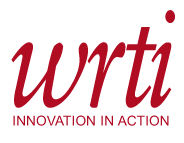
Wessex Region of Technologists and Inventors
Previously - Wessex Round Table of Inventors
Many apparent 'inventions' have already been invented by someone else and/or have insufficient potential to become successful. Spending time researching the subject up front will help prioritise activities and save wasting time and money. Much of the research can be done on-line for free, using the Inventors links on this site and search engines such as Google.
To make a credible early-stage assessment or presentation of an idea typically requires answering questions like these (you may need to use assumptions in the financial section):
The Invention
What is the problem being solved and what innovation is there?
What benefit does the invention bring and what is the added value?
What alternative approaches are there to solving the same problem?
What Intellectual Property (IP) rights are there and how are they protected?
What existing third-party IP rights are there and how are they protected?
How could the idea evolve for future products/services/markets?
Market Analysis
What is/are the key differentiating factors?
What customers are the product/service targeted at?
What is the market size?
What proportion of the market could be captured and why?
How would the product/service be marketed and sold?
How would the price of the product/service be determined?
What advertising, promotion and distribution channels would be used?
How much competition is there and how is it likely to react/change?
What are the barriers to entry for existing or new competitors?
How will market trends affect future prospects?
Risk Analysis
What are the technical risks - unproven technology, product development, etc?
How will the technical risks be managed - simulations, prototypes, back-up plans, etc?
Do you have the skills and experience to start, implement and manage the business?
What would be the impact of time delays and how are they to be avoided?
What would be the impact of cost overuns and how are they to be avoided?
If successful, what is to stop competitors copying the concept?
Logistics - how are the products sourced/distributed and what might go wrong?
Legal considerations - product liability, certification, type approvals, third-party IPR, etc?
Financial Analysis
How will the business make its income and profit?
What is the scope for licencing/franchising the product/service?
What aspects would be done in-house versus outsourced?
What are the potential gross and net returns for the product/service?
When will the product/service come to market?
What grants have been/will be considered/applied for/awarded?
How much capital is required to fund the business through to profit?
What potential rate of return could be achieved on an initial investment?
Usually it is necessary to repeat the process, changing the concept until a potentially winning solution emerges. Once something with the necessary potential is apparent, the hard work can start on proving it. Being able to answer these questions should inspire much more interest and confidence from any serious inventor, partner, investor, licensee or distributor.
The WRTI maintains the most comprehensive source of information on the web for inventors